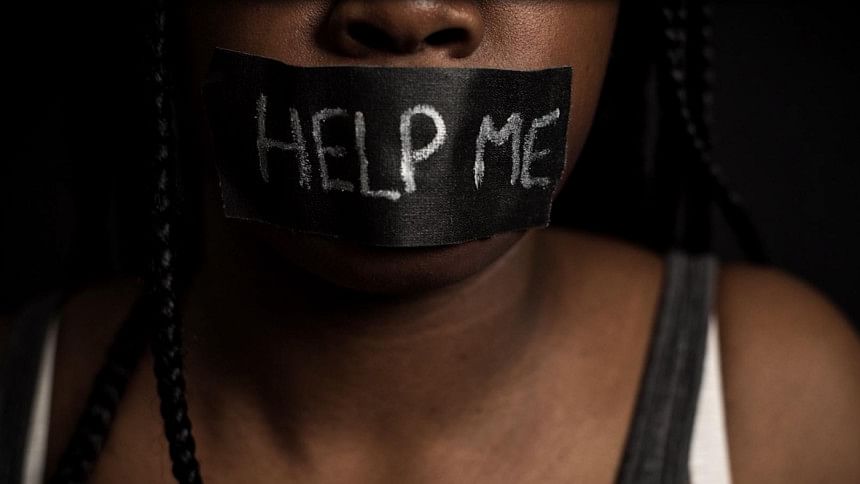How A Nigerian State Turns the Page for Trafficked Women

Edo, one of Nigeria's 36 states, has practically become synonymous with sex trafficking. Last August, Edo state governor Godwin Obaseki said he had had enough. He announced that the appointment of a high-level task force to find solutions to this scourge.
It's an old and intractable problem rooting back to the 1980s. At the time, Edo women would travel to Italy to pursue commercial opportunities, but when things went badly, some resorted to prostitution. A few even went on to become madams.
Since then, a number of international instruments have been adopted to fight trafficking, notably the United Nations Protocol to Prevent, Suppress, and Punish Trafficking in Persons, especially Women and Children (UNTP). Nigeria signed the agreement in 2000 and has passed its own anti-trafficking legislation, which sets forth clear penalties for the trafficking of human beings. Edo state too has adopted laws to stem this practice, and NGOs have been working to help victims for nearly two decades.
Yet none of this helped Naomi Otoijuamu, whose elder brother was involed in trafficking her to Russia. "The humiliation was much in Russia. My mum used to call me often to find out how I was coping. I told her I wanted to come home, but she insisted I pay back the money used to traffick me first. I paid about US$23,000 to the trafficker, and I fell sick immediately. In a day, I slept with about 17 men on average. I have been very sick since I came back. I stayed in Russia for four years."
There are thousands of Noami Otoijuamus. Numerous studies have been written to elucidate the difficulties of solving this problem, with poverty being labelled as the leading cause. But these reports identify many other factors as well, all of which reinforce one another.
Among the most-cited culprits are lack of education, which makes young girls more susceptible to being tricked by false promises of easy money, and cultural biases against women and girls, which contribute to gender-based poverty and a willingness to do anything to break out of it. Corruption is also fingered for contributing to poverty in this resource-rich nation and for making it easy for traffickers to avoid prosecution. Families are often complicit, as they see this as their only way out of poverty. Then there are traditional practices such as Juju, or voodoo, which are often used to frighten victims into silence, making it hard to prosecute their traffickers.
Governor Obaseki has decided to attack the problem. His new Edo State Anti-Human Trafficking Task Force has been charged with finding "home-grown solutions." It is made up of representatives of government ministries, departments and agencies; security agencies; NGOs; the National Agency for the Prohibition of Trafficking in Persons (NAPTIP); and religious and traditional institutions.
Obaseki challenged the task force to come up with new ways to enforce the federal government's trafficking laws within the state and to draw up a comprehensive action plan to help reintegrate victims of the illicit trade back into society. This could include training—as well as potential victims who might be lured by promises of greener pastures—in various trades, and then providing graduates with grants to help them start their businesses.
Clamping down on offenders is also part of his plan. "It has been suggested that a special court be established in the state to prosecute perpetrators," the governor said. "We are losing our young people to this negative trend, and we must make human trafficking a thing of the past in the state."
In a recent visit to Edo, Denmark's Ambassador to Nigeria, Torben Getterman, said her government supports Governor Obaseki's initiatives. Denmark has witnessed a spike in human trafficking from Nigeria, and the Ambassador pledged her country's readiness to collaborate with the state government in tackling this issue.
Meanwhile, valiant NGOs will continue to wage their uphill battle. Idia Renaissance, Prisoners Rehabilitation and Welfare Action (PRAWA), and the Initiative for Youth Awareness on Migration, Immigration, Development and Reintegration (IYAMIDR) all work to deter human trafficking and to help victims reintegrate society.
The most well known is Idia Renaissance, founded in 1999 by Eki Igbinedion, who was then the First Lady of Edo State. She has rehabilitated hundreds of trafficked victims and helped potential victims, setting up a centre where they are trained in new skills. Some four to five hundred candidates now receive certificates and diplomas every year, and Idia Renaissance has begun extending microcredits to graduates interested in starting small businesses.
The fact that Igbinedion has met with so much resistance is indicative of just how daunting the challenges will be for the governor's new task force. She has frequently been the target of hostility on the part of victims and their families, who initially see her as depriving them of an opportunity to make a lot of money abroad, even when they know full well what doing so entails.
Yet Igbinedion doggedly persists, giving at least some young Edo women a livelihood—and a newfound sense of dignity.

 For all latest news, follow The Daily Star's Google News channel.
For all latest news, follow The Daily Star's Google News channel. 



Comments